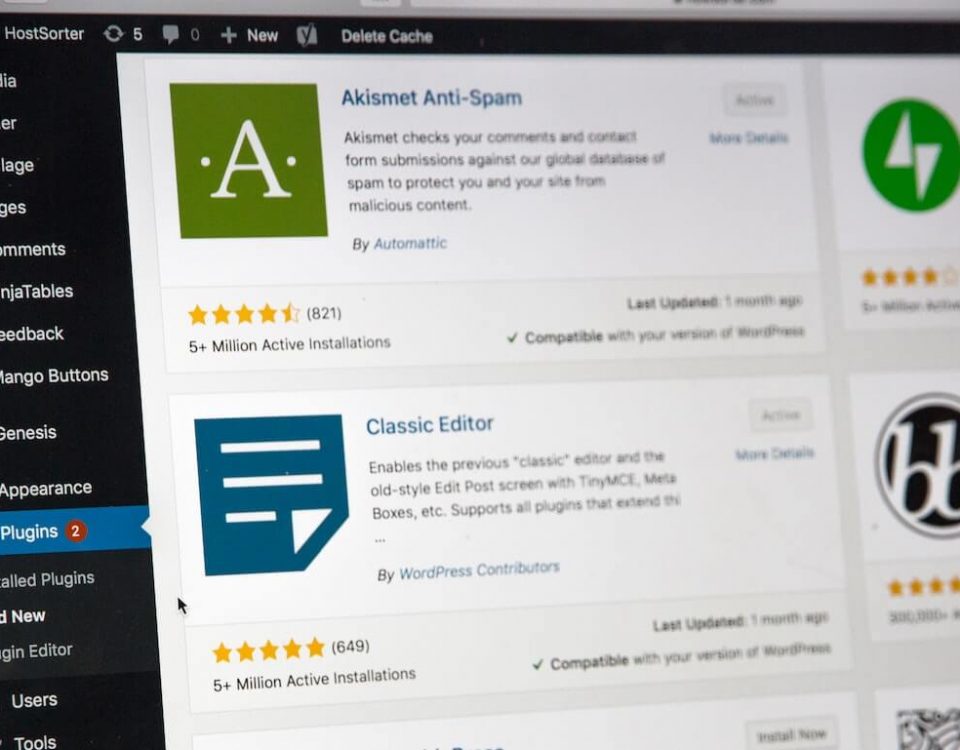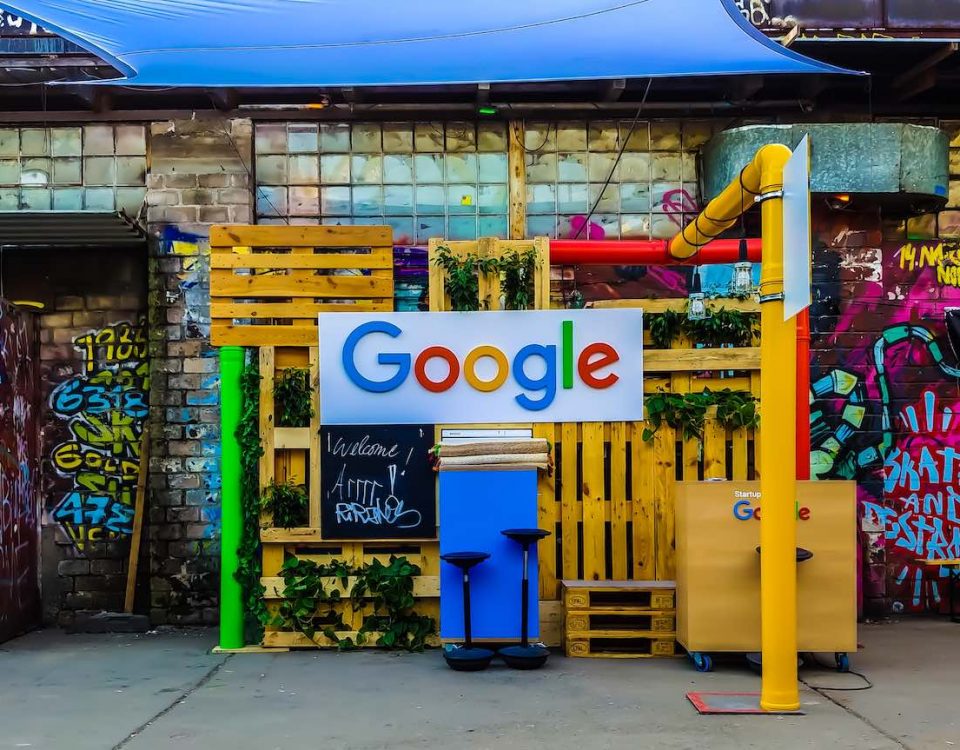Five SEO Tactics that May be Killing Your Rankings

Google’s Top SEO Ranking Factors: What Matters Most
February 29, 2016
Four Steps to Improving SEO with Social Media
March 26, 2016Not so long ago, you could do shady SEO and get away with it. Not any more.
Google changes its search algorithm so often that many SEO experts have problems with keeping track of the modifications. Tactics that once yielded good results can now cause your website to disappear from search results.
To avoid something like this ever happening, it is essential to be up-to-date about the techniques that can harm your website and its rankings in the search engines.
What is bad SEO?
Bad SEO, also known as Black Hat SEO, is a disapproved practice that increases web page ranking, but in a way that violates the terms of service of search engines. For example, if Google discovers use of the unethical, outdated and aggressive SEO strategies, techniques and tactics that are outside the boundaries of Google’s Webmaster Guidelines, your website will be penalized. Google penalties can result in the drop of rankings for every page of a site, for a specific keyword, or for a specific page. There are two types of penalties:
- Manual penalty –This means that someone from Google manually reviewed your website and determined that it is not in accordance to Webmaster Guidelines. These penalties are easier to detect because they come with a message from Google within your Google Webmaster Tools account. You can receive two kinds of manual action notices:
- A site-wide manual action – This section will inform you if your entire website has been penalized. They will also provide a list of reasons for all of the actions Google has applied.
- A partial manual action – This section will let you know if the individual URL or a section of your website has been impacted and the reasons for the penalty.
- Algorithmic penalty – It is very hard to identify the algorithmic penalty because it can happen every time Google updates its algorithm. Your website can suddenly drop in search listings without any kind of advance The usual suspects for these types of penalties are Google’s Panda or Penguin.
SEO techniques and tactics you should avoid
Recovering from Google penalties are very difficult. It can take days to discover the cause of the penalty and even weeks or months to find a way to get back on the right track. Black Hat SEO is like fire – if you play with it, you will get burnt. In fact, even if you didn’t get caught using Black Hat SEO tactics, you could get caught and penalized months after stopping Black Hat practices. Is it worth risking everything just to gain some short-term success at increasing traffic to your site?
We have had clients come to us because they weren’t getting the results they thought they should be getting and in some cases because they saw increased traffic from India and countries where they don’t do business. After conducting a complimentary SEO audit, we learned that – to the clients’ surprise – their SEO providers had been using Black Hat SEO techniques on their sites.
Here are our recommendations for techniques and tactics you need to stop doing right away to avoid being penalized:
- Keyword Stuffing – According to Google, “keyword stuffing” refers to the practice of loading a webpage with keywords or numbers in an attempt to manipulate a site’s ranking in Google search results. Repeating the same keywords of phrases over and over again can do your website more harm than good. Not only will it create a negative user experience (because your content is not written in natural prose), but it can harm your website ranking as well. There is no optimal number of keywords you should use, but as reported by Searchmetrics the top-ranking pages used their specific keyword approximately 8 to10 times, while having an average of 1285 words on the page. Companies receiving first page ranking status in 2015, contain an average of 2100 – 2450 words. Place your keywords in your title, heading, subheading, content, meta descriptions and images, but be careful not to overdo it.
- Hiding text and links – Using text or links that are visible only to search engines but not to users, is considered to be an unethical tactic and is a direct violation of Google’s Webmaster Guidelines. Loading a bunch of keywords and hiding the web page, styling your font with the same text color as the page background, locating the text behind the image, setting the font size to zero, and other similar tactics are huge “no-nos.” Once Google discovers you are hiding text or links on your website, you are likely to be penalized. If you receive this message from Google, the game is over – “Google has detected that some of your pages may contain hidden text or cloaking, techniques that are outside our Webmaster Guidelines.” Removing the hidden text and links doesn’t guarantee your penalties will be lifted any time soon. Be warned, once you are on Google’s blacklist, it is hard to get removed.
- Duplicated content – The main purpose of your website content is to lead your buyer through every stage of the buyer’s journey. Providing quality content with significant value is a necessity if you want to remain relevant to your buyer in the online world. High quality content can generate traffic, boost SEO ratings and conversion rates, increase customer loyalty, brand awareness and sales, but it needs to be unique. Content that is not original is not good for SEO. Officially, there is no penalty for duplicate content, but rankings are negatively impacted.
Content that Google considers to be duplicated contain:
- Exact same page, same content or piece of content
- Have several URLs lead to the same content
- Separate mobile-friendly URLs, printer-friendly URLs, CDN hosts
- Tag pages, press releases, syndicated content, same descriptions, etc.
Content that Google consider not to be duplicated:
- Translations
- Different pages with same title and description
- The same content in the website and in app
- Localized content (ex same content for different countries)
- Link manipulation – Links are intended to easily refer a visitor to additional, relevant information. However, a link that is created strictly for ranking or monetary benefits is considered to be an unethical practice. This practice is referred to as a link scheme. There are various examples of link manipulation.
According to Google, these schemes can negatively impact your website’s ranking in search results:
- Buying or selling links that pass Page Rank. This includes exchanging money for links, or posts that contain links; exchanging goods or services for links; or sending someone a “free” product in exchange for them writing about it and including a link
- Excessive link exchanges (“Link to me and I’ll link to you”) or partner pages exclusively for the sake of cross-linking
- Large-scale article marketing or guest posting campaigns with keyword-rich anchor text links
- Using automated programs or services to create links to your site
- Using unnatural links also can be considered a violation of Webmaster Guidelines
- Cloaking and sneaky redirects – Black Hat tactics can get your website banned from Google and other search engines. Sneaky redirects send users to a page they did not initially intend to visit. This cloaking technique shows users a different page than the search engine crawlers index. Both of these tactics are misleading and deceptive and can have serious consequences for you and your website.
Guaranteeing Your Site Is Black Hat Free
SEO is always changing – rules that apply today may not be valid in the near future. It can be difficult to determine if your SEO provider has purposefully (or not) used Black Hat SEO practices. It is important to be sure your website is free of Black Hat tactics.
Want to know for sure?
Click the image below to receive your complimentary SEO analysis. In addition to learning whether or not your site is a Black Hat free zone, you will receive information that will help you create a strong strategy to increase your page rankings.





